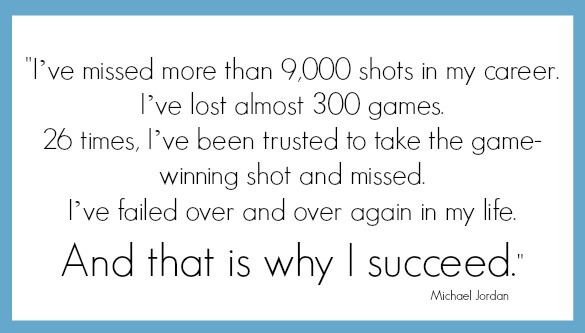Ask Jennifer – My Child Is Too Competitive

 How do you handle an overly competitive child? “Mom, my friend is going to read to page 80, so I need to read to page 80. I don’t want to lose.” Mom, this guy wrote 5 pages of poems, so I want to write 6.” “Mom, I think this person is going to be faster than me, so I need to be faster.” I swear it never stops. I’m worried my child is too competitive.
How do you handle an overly competitive child? “Mom, my friend is going to read to page 80, so I need to read to page 80. I don’t want to lose.” Mom, this guy wrote 5 pages of poems, so I want to write 6.” “Mom, I think this person is going to be faster than me, so I need to be faster.” I swear it never stops. I’m worried my child is too competitive.
I have to admit that this question made my gut clench a little bit. I am a competitive person. I always have been. David used to laugh and make fun of me when I would get angry about losing games we played. “It’s just a game.” He would tell me. “It isn’t a big deal.” Once, we were partnered in a game of 42 (dominoes) and he threw the game when he thought I was being too competitive. I was so angry with him I threw down my last domino. It ricocheted off the table and hit him in the forehead. After that, I realized he may have a point.
For some of us, like me, a competitive spirit may be hard-wired into our DNA (I blame my dad for that genetic quirk.) For others, it could stem for an emotional need for love or acceptance. And still for others, it could be the fact that society is always urging us to be our best. Whatever the reason, when competitiveness interferes with our ability to have a happy, healthy life, it is time to make some changes (I now repeat “it is just a game” when I’m playing anything). As parents, it is our job to teach our children how to be “good” competitors so that they never reach the point of turning game pieces into projectiles that they hurtle at their spouses.
There are advantages to having a competitive spirit. According to Moms Who Think, “Studies show that competition can teach children to self-respect. It can teach them to cope with emotions like jealousy and it can teach them to try things they might not be good at.” So while we don’t want to eliminate their desire to win altogether, we do want to teach them how to focus that desire in a healthy manner.
1. Be the best you. – Because I stressed myself out all the time as a child trying to be the best, and then feeling bad when I wasn’t, I tell my kids that I do not expect them to be the best at everything. No matter how good you are, there will always be someone a little better (and someone a little worse). World records are broken all the time. I want my kids to focus on being the best them they can be. “Did you do YOUR best?” I ask all the time. Then you can feel good about the results.
2. Focus on your abilities. – Different people have different strengths and weaknesses. I think it is important that we point this out to our kids. My daughter has an amazing singing voice. I cannot carry a tune to save my life. My son can dance. My daughter… well, she has a great singing voice. When I was a little girl my mom told me that singing wasn’t for me. Harsh? I don’t remember it that way. I’m sure she found a positive way to relay to me that singing was not my area of expertise. This helped me to focus on areas where I did have strengths. Don’t be the momma on American Idol telling everyone your baby can sing when you know he can’t.
3. Provide another reason to play. – There are a lot of reasons to compete or be on a team. Not all of those are about winning. Dr. Seteven Richfield wrote the following for healthyplace.com:
Some children view the need to win as the fuel that makes competition fun and gives them a reason to play. The notion that they could derive other satisfactions, such as socialization or incremental improvement, doesn’t occur to them. This narrow perception sets the stage for disproportionate reactions to winning or losing. Use this awareness to expand their view of the “reasons to play” while showing them how the feelings we bring to competition should match up with all the other circumstances surrounding the game.
Other reasons to compete: being part of a team, learning more about yourself, having fun, making friends. Emphasize learning, effort, and fun instead of winning.
4. Improving is better than winning. – This step goes with those above. It is important that we teach our children that they cannot always win and that there is no shame in losing because it helps us learn how to be better. I love the quote from Michael Jordan:
This is an important lesson for our kids. Learning how to be a winner is more important than winning.
5. Be a good role model. – Becoming a mom has helped me reign in my competitive spirit. Now that I’m teaching them that winning isn’t everything, I’m learning that for myself as well. We like to think of the old adage “do as I say, not as I do” when we are teaching our kids, but that doesn’t work. If we want to teach our kids how to be good competitors and that winning isn’t everything, then we have to model that behavior for them. Parents.com recommends “Listen to yourself when you talk about your accomplishments, and pay attention to whether you tend to compare yourself with others, even if unfavorably. Ideally, your child will learn to focus on her own achievements rather than on outshining someone else.”
6. Reassure them. – Part of my competitiveness stemmed from the feeling that I wanted to be good enough. I wanted people to like me. The “better” I was, then the happier the people I loved would be. It took a long time for me to learn that this was not true. It is important that we do not tie our affections to wins and losses. You win, you get a hug. You lose, you get a hug. You get straight A’s, you get a hug. You get all C’s, you get a hug. Whatever the highs and lows are for your kids, make sure that they always know you will be there for them and that you love them whether they get the blue first place ribbon or the purple one for participation.
Losing or coming in second does not shape who we are. The real winners are the ones who keep trying to be better. It is our job to make sure that our kids learn that lesson.
Were you or do you have an overly competitive child? What are some of your tips?
It’s YOUR turn!
Have you got a question, problem, or situation where you’d like a little guidance or an independent opinion? The questions/problems can be about anything: parenting, relationships, marriage (25 years of experience, yo!), work, home improvement, craft projects, sewing, living with ADD… whatever. They can be serious or silly or outofthisworldyoubettercallapsychiatrist. The only thing is that you have to remember that I am NOT a professional, and none of my advice should be considered that of a professional. I’m just a girl who’s been through a lot and likes to share what she has learned.
Ask your questions here and you just might see the answer next week!
READ MORE “ASK JENNIFER” HERE.
PIN IT FOR LATER:

This content was written by Jennifer Williams exclusively for BonBon Break Media, LLC


